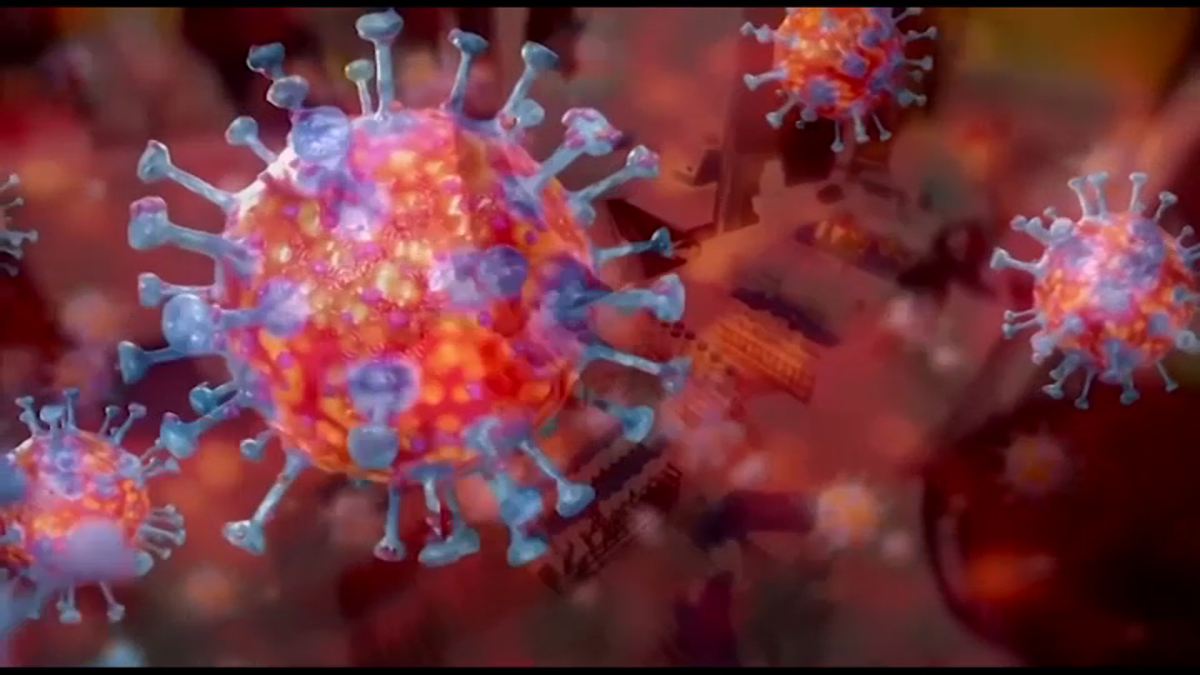
COVID symptoms linked to the omicron variant have been described as “extremely mild” by doctors in South Africa who first raised the alarm over the new strain.
There are still many questions left to be answered as scientists work to understand the new omicron variant spreading across the U.S. and the globe, but with the variant now in Illinois and Chicago are there symptoms you should be watching for?
While it's still early in the investigation, some doctors in South Africa who have treated cases said the symptoms appear to differ from what many have come to expect with the delta variant.
So what are the symptoms of the new omicron COVID variant and the delta COVID variant?
Though health experts have said it will take weeks to understand how the variant may affect diagnostics, therapeutics and vaccines, here's what we know so far.
Feeling out of the loop? We'll catch you up on the Chicago news you need to know. Sign up for the weekly Chicago Catch-Up newsletter here.
Omicron COVID variant symptoms
COVID symptoms linked to the omicron variant have been described as "extremely mild" by doctors in South Africa who first raised the alarm over the new strain.
Most of the new cases in South Africa have been among people in their 20s and 30s, and doctors note that age group generally has milder symptoms of COVID-19 in any case.
They warn though that older people infected by the new variant could have more severe symptoms.
“We've seen a sharp increase in cases for the past 10 days. So far they have mostly been very mild cases, with patients having flu-like symptoms: dry coughs, fever, night sweats, a lot of body pains," said Dr. Unben Pillay, a general practitioner in Gauteng province where 81% of the new cases have been reported.
Dr. Angelique Coetzee, chair of the South African Medical Association, told the BBC on Sunday that she started to see patients around Nov.18 presenting with "unusual symptoms" that differed slightly to those associated with the delta variant, which is the most virulent strain of the virus to date and globally dominant.
"It actually started with a male patient who's around the age of 33 ... and he said to me that he's just [been] extremely tired for the past few days and he's got these body aches and pains with a bit of a headache," she told the BBC.
The patient didn't have a sore throat, she said, but more of a "scratchy throat" but no cough or loss of taste or smell — symptoms that have been associated with previous strains of the coronavirus.
Coetzee said she tested the male patient for COVID, and he was positive, as was his family, and then said she saw more patients that day presenting with the same kinds of symptoms that differed from the delta variant.
Other patients she had seen so far with the omicron variant had also experienced what she described as "extremely mild" symptoms, and she added that her colleagues had noted similar cases.
"What we are seeing clinically in South Africa — and remember I'm at the epicenter of this where I'm practicing — is extremely mild, for us [these are] mild cases. We haven't admitted anyone, I've spoken to other colleagues of mine and they give the same picture."
Symptoms of the delta COVID variant are similar to that of the alpha COVID strain (B.1.1.7), but are found to cause more cold-like symptoms.
"Headache, sore throat, runny nose, and fever are present based on the most recent surveys in the U.K., where more than 90% of the cases are due to the delta strain," Dr. Inci Yildirim, a Yale Medicine pediatric infectious diseases specialist said when the strain was first detected earlier this year.
Still, experts caution that symptoms can vary by person and testing is the only way to find out.
"You're not going to be able to tell the difference between between [the omicron COVID variant] from the beginning, influenza, or even most of our common colds in the winter," said Dr. Emily Landon, an Infectious Disease Specialist at the University of Chicago. "You're not going to know the difference between those if you just look at your symptoms. For many people, those symptoms are overlapping. You're just not going to know especially at the beginning of an illness, what kind of illness you have -- you have to get tested."
Overall, according to the Centers for Disease Control and Prevention, people with COVID-19 have reported a wide range of symptoms, from mild to severe.
Symptoms may appear two to 14 days after exposure to the virus and can include:
- Fever or chills
- Cough
- Shortness of breath or difficulty breathing
- Fatigue
- Muscle or body aches
- Headache
- New loss of taste or smell
- Sore throat
- Congestion or runny nose
- Nausea or vomiting
- Diarrhea